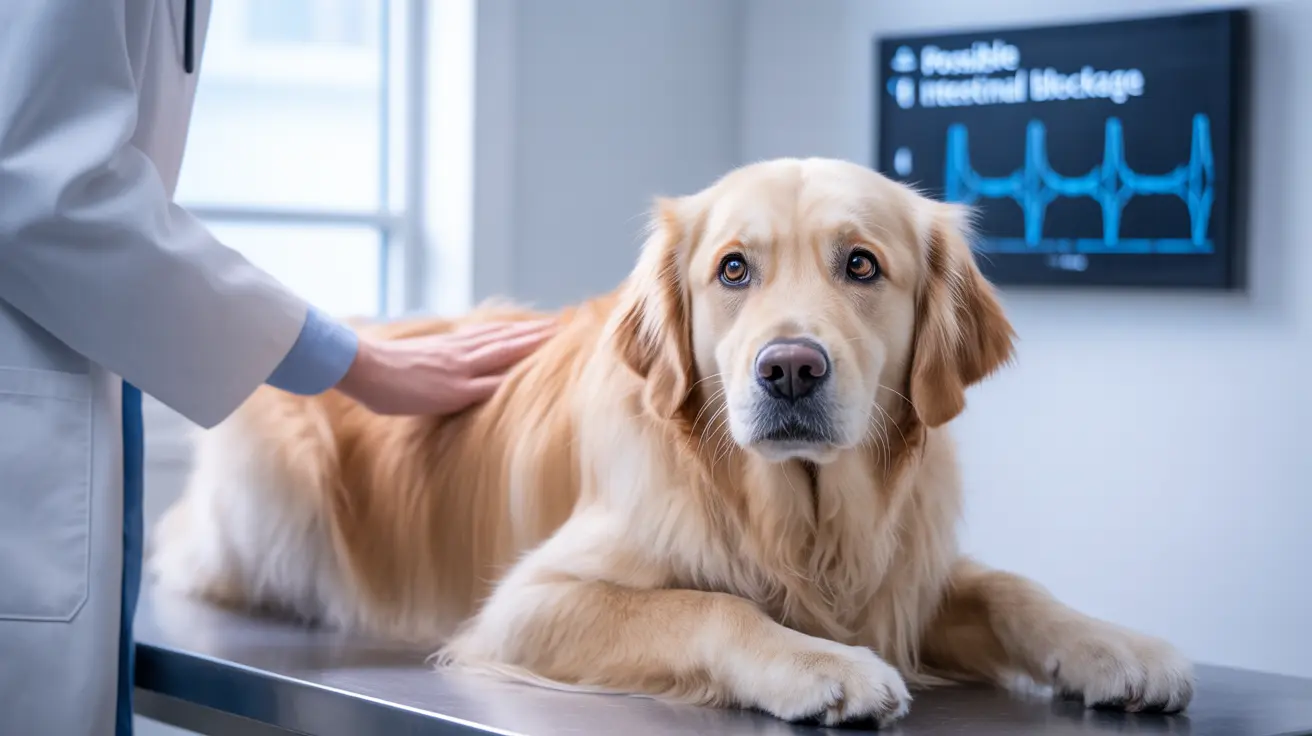When a dog experiences an intestinal blockage, it's a serious medical condition that requires immediate attention. This potentially life-threatening situation occurs when something obstructs the normal flow of digestive materials through your dog's gastrointestinal tract. Understanding the causes, recognizing the symptoms early, and knowing when to seek veterinary care can make a crucial difference in your pet's outcome.
While some cases may resolve without surgery, particularly partial blockages caught early, many situations require immediate medical intervention. This comprehensive guide will help you understand everything you need to know about dog intestinal blockage, from initial warning signs to treatment options and recovery.
Understanding Dog Intestinal Blockage
Intestinal blockages occur when foreign objects, tumors, or other materials prevent normal digestive function. Common culprits include toys, bones, rocks, cloth items, and other non-digestible materials that dogs might swallow. Some breeds, particularly Labradors and Golden Retrievers, are more prone to this condition due to their tendency to eat non-food items.
Warning Signs and Symptoms
Early detection of intestinal blockage is crucial for successful treatment. Watch for these key symptoms:
- Frequent vomiting, especially projectile vomiting
- Loss of appetite or complete food refusal
- Lethargy and depression
- Abdominal pain or swelling
- Difficulty defecating or constipation
- Changes in behavior or restlessness
- Dehydration signs (dry gums, sunken eyes)
Diagnosis Process
Veterinarians use several methods to confirm an intestinal blockage:
- Physical examination and abdominal palpation
- X-rays to locate the obstruction
- Ultrasound imaging for detailed visualization
- Blood work to assess overall health
- Contrast studies in some cases
Treatment Approaches
Treatment options vary depending on the severity and location of the blockage:
Conservative Management
For partial blockages or small objects that might pass naturally, treatment may include:
- IV fluid therapy
- Anti-nausea medications
- Close monitoring
- Restricted food intake
Surgical Intervention
Surgery becomes necessary when:
- The blockage is complete
- The object is too large to pass naturally
- There's risk of intestinal damage
- Conservative treatment hasn't worked
Recovery and Aftercare
Post-treatment care is crucial for full recovery. This typically includes:
- 10-14 days of restricted activity
- Special dietary considerations
- Regular monitoring of surgical sites
- Follow-up veterinary visits
- Pain management as needed
Prevention Strategies
Preventing intestinal blockages is always preferable to treatment. Key prevention measures include:
- Supervising playtime
- Removing small objects from dog's reach
- Using appropriately sized toys
- Training commands like "leave it"
- Regular veterinary check-ups
Frequently Asked Questions
What are the most common causes of intestinal blockages in dogs?
The most common causes include ingested foreign objects like toys, bones, rocks, and clothing items. Some dogs may also develop blockages due to tumors, severe inflammation, or complications from previous surgeries.
How do I recognize the symptoms of an intestinal blockage in my dog?
Key symptoms include persistent vomiting, loss of appetite, abdominal pain, constipation or difficulty defecating, lethargy, and visible discomfort. In severe cases, dogs may show signs of shock, including pale gums and collapse.
What are the best ways to prevent intestinal blockages in dogs?
Prevention includes supervising your dog during play, removing access to small objects, using appropriate-sized toys, training commands like "leave it," and maintaining regular veterinary check-ups.
How is an intestinal blockage diagnosed in dogs, and what are the typical diagnostic tests?
Diagnosis typically involves physical examination, X-rays, ultrasound imaging, and blood tests. In some cases, contrast studies or exploratory surgery may be necessary for confirmation.
What is the typical recovery process and prognosis for dogs that have undergone surgery for intestinal blockage?
Recovery typically takes 10-14 days with restricted activity. Most dogs make a full recovery when treated promptly. The process includes post-operative care, pain management, dietary adjustments, and follow-up veterinary visits.






